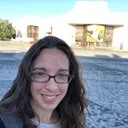Stay in the Loop
BSR publishes on a weekly schedule, with an email newsletter every Wednesday and Thursday morning. There’s no paywall, and subscribing is always free.
Beauty in brokenness
‘My Broken Language’ by Quiara Alegría Hudes

In her new memoir, My Broken Language, playwright Quiara Alegría Hudes never mentions the titles of her plays or Lin-Manuel Miranda, with whom she created the Broadway musical In the Heights and its upcoming film adaptation. Rather, she writes about finding her voice as an artist and the Perez women, her Puerto Rican family who would influence and inspire her work. Hudes describes a coming of age that often feels fragmented and divided due to competing racial and cultural identities, but, like her memoir, it’s rich in rewards and pleasures.
Childhood fractures
These divisions begin in Hudes’s childhood. At age 5 she moves with her Puerto Rican mother, Virginia, and her white father from West Philadelphia to Malvern. Her white classmates make fun of her first two names and ask if she is adopted when they meet her mother, whose skin tone is darker than her daughter’s. The spiritual differences between her parents also confuse and trouble her. Her Jewish father quotes Marx: “Religion is the opiate of the masses,” while her mother later becomes a priestess of Chango in the Lucumi Afro-Caribbean tradition. “If religion is the root of all evil, then is mom evil, too?” she asks herself.
When her parents’ relationship ends, she and her mother move back to West Philadelphia and Hudes spends years commuting back and forth between the city and Malvern, her relationship with her father slowly receding after he remarries and has more children. Hudes is loved and embraced by her North Philadelphia-dwelling Perez family, but she is painfully aware of how she is separated and different due to her white suburban privilege.
When Gloria Steinem visits the health nonprofit where Virginia works, Hudes watches with her mother and the two other BIPOC colleagues from behind a glass window as Steinem meets with the white managers. “Which part of the divide did I fall on?” Hudes wonders. “Would I have been invited to the courtyard or forced to view it soundlessly from a distance?”
Language on record
Language as identity and power is a driving theme in Hudes’s story. She recalls how as a child she corrected her mother’s pronunciation of some English words until she realized that English was her mother’s language, too, and these corrections were a form of colonization. “Break this English language today and tomorrow and the day after and bestow it new life with each breaking,” she writes to her mother.
Yet Hudes also feels this brokenness in her relationship to Spanish, her second language. When she arrives at Brown University to pursue her MFA in playwriting, she feels permitted to embrace this dissonance, empowered by her mentor, Pulitzer Prize-winning playwright Paula Vogel, who tells her, “Your Spanish is broken? Then write your broken Spanish.”
Hudes comes to playwriting at the urging of her mother, who asks her to tell their family’s stories so that they, too, will become a part of the cultural and historical record from which they have long been excluded. “Didn’t I always say how much power a library shelf holds?” she says to her daughter. Hudes later immortalizes her family on stage in the Pulitzer finalist Elliot, A Soldier’s Fugue, the 2012 Pulitzer winner Water by the Spoonful, and Daphne’s Dive, which is inspired by her stepfather’s bar.
A musical memoir
In her memoir she details her grandmother’s forced sterilization in Arecibo, Puerto Rico, which led to Virginia’s work in health care for Latin women, and the cousins whose lives are cut short by drugs and AIDS. But there is joy, celebration, and mystery as well: raucous dance parties, sacred religious rituals, and a dramatic chapter late in the book where she extolls the sensuous and varied bodies of the Perez women. They inspire her graduate thesis, a play based on her younger sister’s adolescence, which she writes in an ecstatic event.
Though her relationship to language is complex, Hudes employs it to propulsive and dizzying effect, her sentences written at a gallop. The musicality of the writing and the memoir’s fugue-like structure of jumping between memories and themes speak to her background as a musician and composer before she found playwriting.
The result is a portrait of a life that is beautiful in its brokenness.
On Wednesday, April 7, 2021, the Free Library and Philly’s Power Street Theatre present a free livestream conversation between Quiara Alegría Hudes and Paula Vogel. Register online through the Free Library.
Image description: The cover of My Broken Language, by Quiara Alegría Hudes. Against a black background are the silhouetted figures of seven women outlined in pink, white, yellow, orange, red, blue, and yellow, respectively. A white cat and another human figure flank them. Behind the women is a red and blue Ferris wheel. Above the women is the title in white lettering, “My Broken Language,” and below the lettering in red handwriting-style text, “A Memoir.” Below the women is the author’s name in white lettering, Quiara Alegría Hudes. Below her name in red handwriting-style text is “Winner of the Pulitzer Prize.”
What, When, Where
My Broken Language. By Quiara Alegría Hudes. New York: One World, April 6, 2021. 336 pages, hardcover, $28. Get it on Bookshop.org.
On April 7 at 7:30pm, the Free Library, in partnership with Power Street Theatre, will present a free livestreamed conversation between Hudes and Paula Vogel. Register on the Free Library’s website.
Sign up for our newsletter
All of the week's new articles, all in one place. Sign up for the free weekly BSR newsletters, and don't miss a conversation.

 Kirsten Bowen
Kirsten Bowen